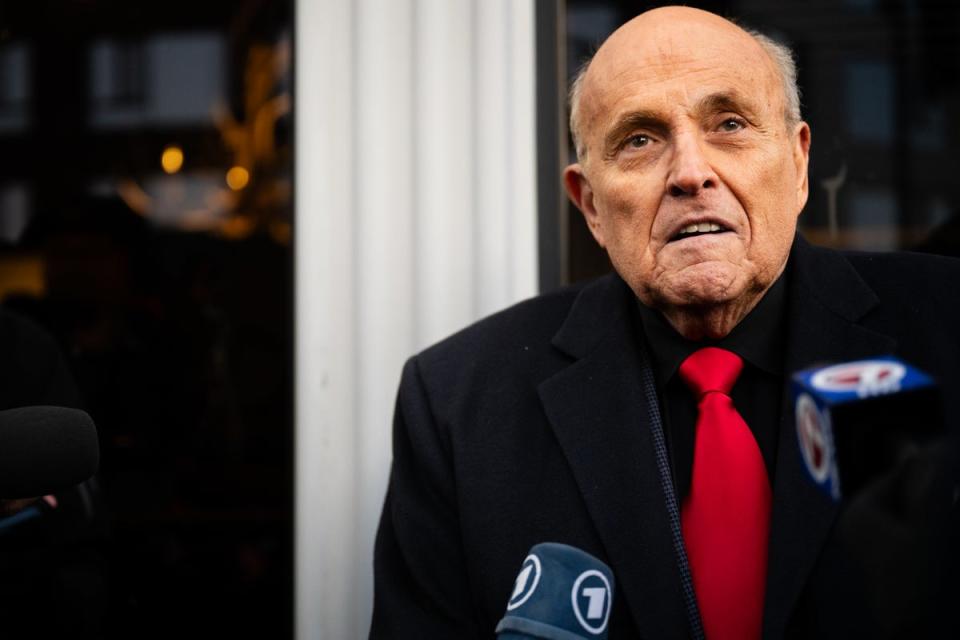Donald Trump’s former lawyer Rudy Giuliani has listed a claim against the one-term president over unpaid legal fees in a new bankruptcy filing.
The ex-New York City mayor includes a “possible claim for unpaid legal fees against Donald J Trump.” in the 26 January filing, which states that the amount is “undetermined.”
Mr Giuliani filed for bankruptcy last month, days after a federal judge ordered him to “immediately” pay more than $148m to a pair of Georgia election workers a jury determined he defamed.
Mr Giuliani represented Mr Trump in a string of unsuccessful lawsuits contesting the results of the 2020 election that he lost to Joe Biden.
Mr Trump’s legal fees owed to Mr Giuliani have previously been reported. The New York Times wrote in August 2023 that “Mr Trump has never explicitly told Mr Giuliani why he is effectively stiffing him, but the former president has pointed out that he lost the cases related to the election.”

The newspaper reported that the former president told his aides that he didn’t want Mr Giuliani to receive “a dime” unless he
